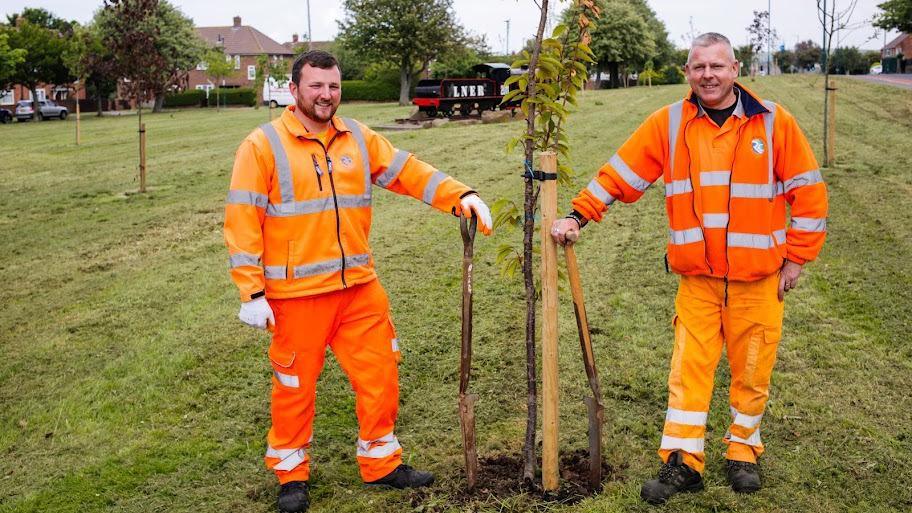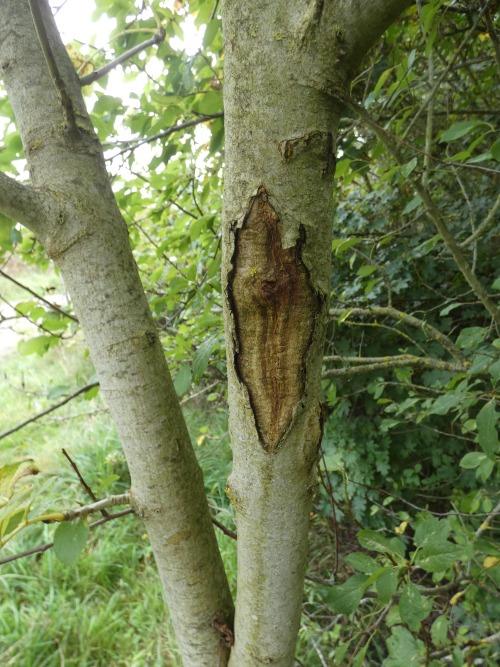Diseased ash tree cull to force major road closures

The council is planting trees to replace the ones cut down
At a glance
Major road closures will be necessary during a "mass removal" of diseased ash trees.
All main arterial routes between Redcar, Guisborough and East Cleveland will have to be shut at some stage.
Ash dieback has meant 112 trees have had to be cut down in the Redcar and Cleveland borough as of last month.
The disease weakens trees leaving them at risk of collapse.
- Published
A "mass removal" of diseased ash trees is expected to need major closures across main roads.
Redcar and Cleveland councillors have been told all main arterial routes between Redcar, Guisborough and East Cleveland would have to be shut at some stage.
Councillors were told 112 trees affected by ash dieback disease had been cut down as of last month.
The disease, which is prevalent across the UK, weakens trees leaving them at risk of collapse.
Members of the council’s climate and environment scrutiny committee have been told trees adjacent to carriageways are a potential safety hazard and need to come down.
Last year, Barry Hunt - the council's cabinet member for neighbourhoods and housing - told the Local Democracy Reporting Service the authority was taking the risk posed by ash dieback “extremely seriously” and had compiled a list of affected trees.

Ash dieback can leave trees weak and at risk of collapse
The council has said it intended to have about 17,000 new trees planted this year, on top of the 4,000 planted last year at a cost of £25,000.
Members of the council’s climate and environment scrutiny committee have been told these include a mix of native trees, cherry and willow.
A report to the committee said some saplings had been vandalised and damaged at Eston Recreational Ground and in Brotton soon after they were planted.
The very dry summer and sustained warm temperatures had also caused difficulties in terms of the watering required, it said.
Related stories
Ash dieback disease continues rampant spread
- Published3 October 2022
Some landscapes show resistance to ash dieback
- Published8 May 2020
National Trust's 'worst year' for ash dieback
- Published2 October 2020
Related links
Follow BBC North East & Cumbria on Twitter, external, Facebook, external and Instagram, external. Send your story ideas to northeastandcumbria@bbc.co.uk, external.